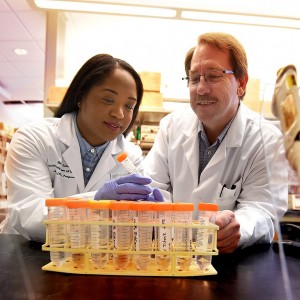
“Could Diet Adjustment Prevent Aggressive Prostate Cancer?” – an article from Cancer Therapy Advisor can be accessed here.
Comments from Dr. Rosenberg on the article:
Please do not use the ketogenic diet for all cancers! Prostate cancer has a different metabolic phenotype than the classic glycolytic cancers, where the “Warburg effect” applies.
Prostate cancer tends to increase their uptake of amino acids, such as glutamine and arginine, as well as fatty acids. Prostate cancer also increases expression of the enzyme fatty acid synthase, to help synthesize long-chain fatty acids. As I mentioned in prior issues, there is significant data to suggest that statins may inhibit prostate cancer. Because of prostate cancer’s reliance on lipids, the FDG-PET scan is not an ideal imaging study.
So what kind of diet should prostate cancer patients follow? Low fat diet, but keep in mind, that as the cancer progresses and mutates, some of the lesions may become glycolytic, requiring low carbohydrate intake as well.
healthyliving January 10th, 2019
Posted In: cancer care, Cancer Prevention, Healthy Lifestyle
Tags: cancer care, diet, diet adjustment, healthy diet, prevent prostate cancer, prevention, prostate cancer

A small, daily dose of Viagra may reduce colorectal cancer risk – an article by ScienceDaily can be accessed here.
Comments from Dr. Rosenberg on the Article:
Over the last decade, researchers have elucidated the roles that impairment of cGMP signaling pathway by PDE5 activity inhibition plays in the regulation of tumor development, and progression.
PDE5 inhibition could be associated with a decreased risk of human cancer development and suppression of tumor progression in several malignancies including those of the lung, prostate, breast and colon. PDE5 inhibitors may also provide an additional anti-tumor immune response in patients affected by myeloma and head and neck squamous cell carcinomas. In addition, a synergistic effect with current chemotherapeutic regimens and monoclonal antibodies has been reported.
Although it likely will not cause harm to use PDE5 inhibitors as both a cancer preventative, as well as an adjunct to existing therapies, some questions need to be answered:
1. Which are the most effective class of PDE5 inhibitors against cancer?
2. Within each class, which drug(s) is the most effective?
3. Optimal dosage?
healthyliving December 20th, 2018
Posted In: cancer care, Cancer Prevention, Healthy Lifestyle
Tags: cancer, cancer prevention, colorectal cancer, prevention, viagra